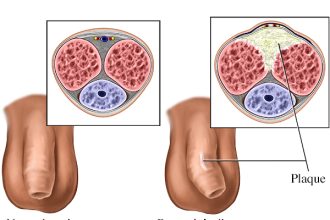In recent years, opioid addiction has become a major public health crisis in many parts of the world. According to the World Health Organization, opioid overdose deaths have increased nearly 500% over the last two decades.
While traditional treatment approaches such as medication-assisted therapy have been effective for some, many individuals struggling with opioid addiction continue to face significant challenges in their recovery. As a result, there has been a growing interest in holistic approaches to opioid addiction treatment that combine traditional and alternative methods.
Holistic approaches to addiction treatment view the individual as a whole, considering their physical, emotional, and spiritual needs. These approaches recognize that addiction is a complex disease that requires a comprehensive approach to address all aspects of a person’s life.
In this blog post, we will explore the benefits of combining traditional and alternative methods for opioid addiction treatment, including mindfulness practices, acupuncture, and yoga. We will also discuss the importance of personalized treatment plans and ongoing support for individuals in recovery.
The Benefits of Incorporating Alternative Therapies Into Opioid Treatment Programs
If you’re struggling with opioid addiction, you may wonder how to treat it best. There are many different ways to go about this, and one option is to integrate alternative therapies into your treatment plan.
Alternative therapies have been gaining popularity in recent years to augment traditional medical treatments. For individuals struggling with opioid addiction, incorporating alternative therapies into their treatment plan can offer numerous benefits.
Here are some of the advantages of incorporating alternative therapies into opioid treatment programs:
Reduced Reliance on Medications: One of the main benefits of incorporating alternative therapies into opioid treatment programs is that it can reduce an individual’s reliance on medications such as methadone or buprenorphine. Alternative therapies can help alleviate withdrawal symptoms and cravings, reducing the need for medication-assisted therapy. This can also help minimize the risk of developing a dependence on medication.
Improved Emotional Well-being: Alternative therapies such as mindfulness practices, acupuncture, and yoga can help individuals in recovery manage stress and anxiety, improve their mood, and promote a sense of well-being. These therapies can also help individuals develop healthy coping mechanisms and improve their overall quality of life.
Addressing the Root Causes of Addiction: Alternative therapies can help individuals in recovery address the root causes of their addiction, such as trauma, anxiety, or depression. By addressing these underlying issues, individuals can better understand their addiction and develop effective strategies for managing their triggers and avoiding relapse.
Personalized Treatment Plans: Incorporating alternative therapies into opioid treatment programs allows for a more personalized approach to treatment. Each individual’s needs are unique, and by incorporating a variety of therapies, treatment providers can tailor a treatment plan that addresses each individual’s specific needs.
Reduced Healthcare Costs: Incorporating alternative therapies into opioid treatment programs can reduce healthcare costs by minimizing the need for hospitalizations and emergency room visits. By addressing the root causes of addiction and promoting overall wellness, individuals in recovery can experience improved health outcomes and require fewer medical interventions.
Alternative therapies can offer numerous benefits, including reduced reliance on medications, improved emotional well-being, addressing the root causes of addiction, personalized treatment plans, and reduced healthcare costs. These therapies offer a more holistic approach to addiction treatment and can help individuals achieve long-term recovery.
Examples of Alternative Therapies, Such as Yoga, Acupuncture, and Mindfulness
You’ve been struggling with opioid addiction for a long time. You’ve tried multiple times to get clean, but you can’t make it stick. You keep relapsing and falling back into your old habits.
But what if there were an easier way? What if there were a way to support your body’s natural processes and help reduce your cravings without going through the pain of withdrawal?
Well, there is! Many alternative therapies can be used to support individuals in opioid treatment programs. Here are some examples:
Yoga: Yoga is a practice that combines physical postures, breathing exercises, and meditation to promote overall health and wellness. For individuals in opioid treatment programs, yoga can help alleviate withdrawal symptoms, reduce stress and anxiety, and promote physical fitness.
Acupuncture: Acupuncture is a traditional Chinese medicine practice that involves inserting thin needles into specific points on the body. It is believed to promote energy flow and help alleviate pain and other symptoms. For individuals in opioid treatment programs, acupuncture can help alleviate withdrawal symptoms and reduce pain and anxiety.
Mindfulness: Mindfulness practices involve paying attention to the present moment and accepting one’s thoughts and feelings without judgment. Mindfulness practices can help individuals in opioid treatment programs manage stress and anxiety, reduce cravings, and promote emotional well-being.
Massage Therapy involves manipulating the body’s soft tissues to promote relaxation and alleviate pain. For individuals in opioid treatment programs, massage therapy can help alleviate withdrawal symptoms, reduce muscle tension, and promote relaxation.
Art Therapy: Art therapy involves using art materials and creative processes to express and explore emotions and feelings. For individuals in opioid treatment programs, art therapy can help alleviate stress and anxiety, promote self-expression, and provide a sense of control.
Music Therapy: Music therapy involves using music to promote physical, emotional, and spiritual well-being. For individuals in opioid treatment programs, music therapy can help reduce stress and anxiety, alleviate withdrawal symptoms, and promote relaxation.
These therapies provide a holistic approach to treatment that addresses both the physical and emotional aspects of addiction and can help individuals achieve long-term success in their recovery journey.
The Importance of Finding a Treatment Approach That Works for You
If you’re looking for a way to recover from opioid addiction, it can be easy to feel overwhelmed by all the different treatment options. But don’t worry! We’re here to help you find the right treatment approach for your unique needs and preferences.
When treating opioid addiction, what works for one person may not work for another. So don’t be afraid to explore different options and talk with your healthcare provider about what might be best for you.
Opioid addiction is a complex condition that requires a personalized approach. By working closely with your healthcare provider and being open to different approaches, you can find a treatment plan that works for you and supports your journey to recovery.
Conclusion
Holistic approaches to opioid addiction treatment that combine traditional and alternative methods can benefit individuals seeking to overcome addiction. These approaches can provide a more comprehensive and personalized treatment approach that addresses both addiction’s physical and emotional aspects.
Finding a treatment approach that works for you and considers your unique needs and preferences is essential. If you or someone you know is struggling with opioid addiction, seek professional help and consider incorporating alternative therapies into your treatment plan.
At Confidant Health, we are committed to providing innovative and personalized addiction treatment solutions to help individuals achieve lasting recovery. Our holistic approach to addiction treatment includes traditional medication-assisted treatment and alternative therapies, tailored to each individual’s needs. With our compassionate and experienced team of healthcare providers, Confidant Health can help you or your loved one overcome opioid addiction and achieve long-term success in recovery.















